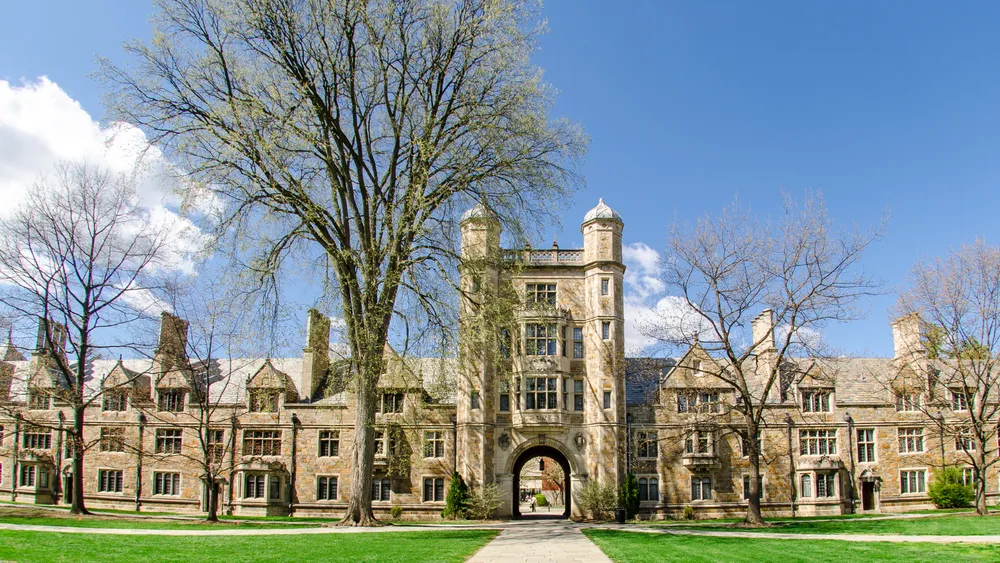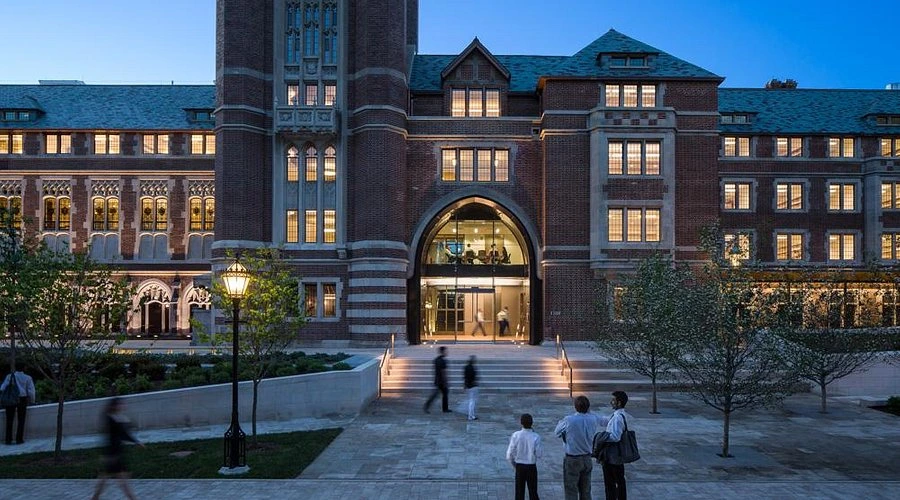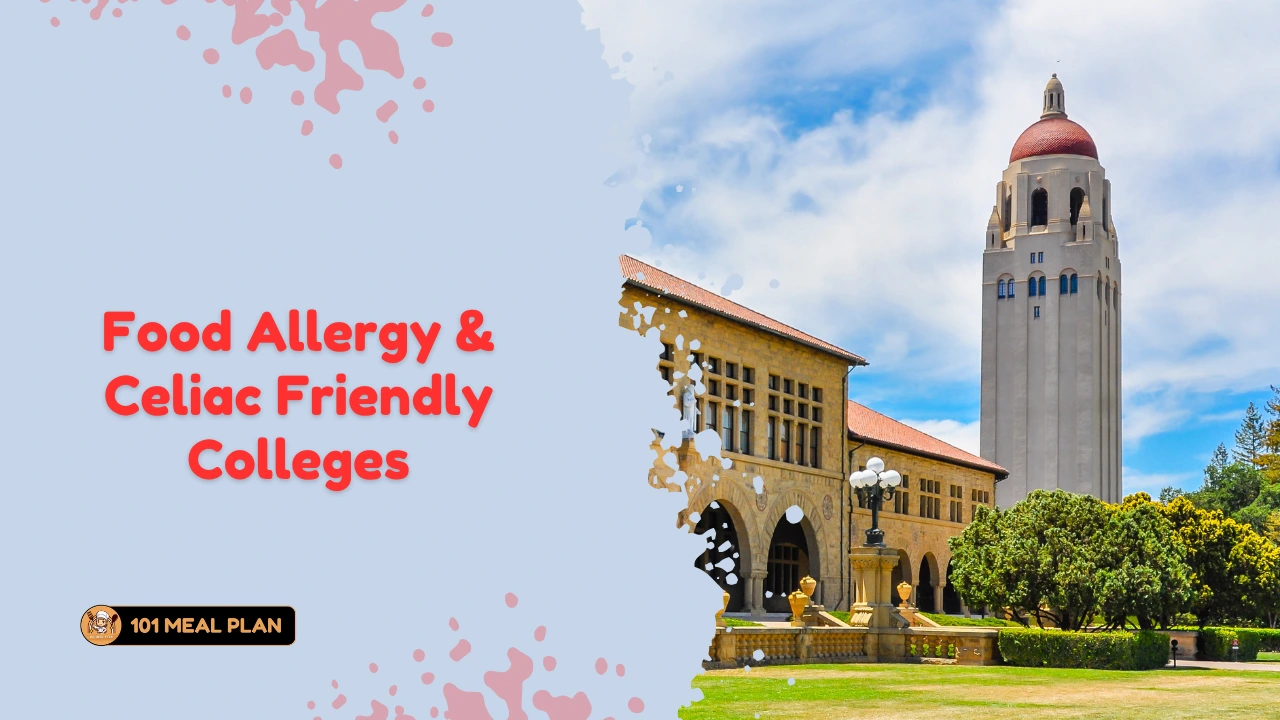Navigating college life with food allergies or celiac disease can be challenging, but with the right resources and support, students can thrive during their academic journey. As we look ahead to 2025, many colleges and universities across the United States have significantly improved their accommodations for students with dietary restrictions. This comprehensive guide explores the best institutions for food-allergic students, highlighting innovative programs, dedicated dining facilities, and supportive campus environments.
For the 7-11% of college students managing food allergies, finding a school that prioritizes food safety is crucial to academic success and overall well-being. Food allergies affect more than just meals—they impact social interactions, mental health, and the ability to focus on studies. The good news is that food allergy awareness on college campuses has grown substantially in recent years, with many institutions implementing comprehensive programs to support students with dietary restrictions.
Under the Americans with Disabilities Act (ADA), colleges are required to provide reasonable accommodations for students with food allergies. These accommodations have evolved from simple menu modifications to dedicated allergen-free dining stations and specialized training for dining staff.
The landscape of food allergy management in higher education continues to improve, with more colleges recognizing the importance of creating inclusive dining environments for all students.
| College | Dedicated Allergen-Free Station | Top 9 Allergen-Free Options | Gluten-Free Options | Pre-Order System | On-Site Nutritionist | Mobile App for Allergen Info |
|---|---|---|---|---|---|---|
| Cornell University | ✓ | ✓ | ✓ | ✓ | ✓ | ✓ |
| Vanderbilt University | ✓ | ✓ | ✓ | ✓ | ✓ | ✓ |
| Northwestern University | ✓ | ✓ | ✓ | ✓ | ✓ | ✓ |
| University of Michigan | ✓ | ✓ | ✓ | ✓ | ✓ | ✓ |
| Stanford University | ✓ | ✓ | ✓ | ✓ | ✓ | ✓ |
| University of Illinois at Urbana-Champaign | ✓ | ✓ | ✓ | ✓ | ✓ | ✓ |
| University of Chicago | ✓ | ✓ | ✓ | ✓ | ✓ | ✓ |
| Boston University | ✓ | ✓ | ✓ | ✓ | ✓ | ✓ |
| University of Denver | ✓ | ✓ | ✓ | ✓ | ✓ | ✓ |
Understanding Food Allergies and Celiac Disease in College Settings
The Transition Challenge
Moving from home to college represents a significant shift in how students with food allergies manage their condition. At home, parents often oversee food preparation and ingredient selection. In college, students suddenly become responsible for navigating dining halls, communicating their needs to staff, and managing potential reactions—all while adjusting to new academic demands and social environments.
Cross-contamination risks increase dramatically in self-serve dining halls where serving utensils may be shared across different food stations. For students with celiac disease, even tiny amounts of gluten can trigger serious health issues, making standard buffet-style dining particularly problematic.
Impact on Student Life
Food allergies can significantly affect a student’s college experience beyond just meal times:
- Social isolation: When students can’t safely eat at campus events or join friends at local restaurants
- Academic performance: Missing classes due to allergic reactions or spending excessive time finding safe food options
- Mental health challenges: Anxiety about potential reactions or feeling “different” from peers
- Financial strain: Purchasing special foods or meal preparation equipment
The most common allergens found on college campuses include peanuts, tree nuts, milk, eggs, wheat, soy, fish, and shellfish—with sesame recently added as the ninth major allergen requiring identification. For students with celiac disease, avoiding gluten (found in wheat, barley, and rye) is essential for preventing serious intestinal damage.
Top 10 Food Allergy-Friendly Colleges of 2025
Based on student testimonials, comprehensive accommodations, and innovative approaches to food allergy management, these institutions stand out as leaders in creating safe dining environments:
1. Cornell University (Ithaca, NY)
Cornell has established itself as a leader in food allergy accommodations with clearly labeled ingredients for most dining hall items. Students with multiple allergies report navigating the dining halls with ease, particularly appreciating the transparency in ingredient disclosure and staff training.

“The dining staff at Cornell takes food allergies very seriously,” reports one student managing peanut, tree nut, sesame, fish, and shellfish allergies. “They’re always willing to prepare something separately if needed, and the labeling system makes it easy to identify safe options quickly.”
2. Vanderbilt University (Nashville, TN)
Vanderbilt’s commitment to food-allergic students is evident in their completely nut-free dining halls. Their “2301” dining venue, certified free of the top 8 allergens plus gluten, has seen a 36% increase in sales since opening in 2018—indicating its popularity among all students, not just those with dietary restrictions.

The university also offers a mobile ordering system that allows students to customize meals according to their dietary needs. This service ensures that specially prepared meals are ready upon arrival at the dining hall.
3. Northwestern University (Evanston, IL)
Northwestern features a dedicated dining hall for students with food allergies that is entirely free of the top eight allergens. This specialized facility allows students with multiple allergies to dine without the constant worry of cross-contamination.

The university also maintains a separate vegetarian/vegan dining hall, providing additional options for students with various dietary needs.
4. University of Michigan (Ann Arbor, MI)
Michigan’s dining services excel in detailed allergen labeling. Every food item in their dining halls includes a comprehensive breakdown of ingredients and potential allergens on adjacent signage.

Students particularly praise the South Quad dining hall for its exceptional attention to detail and variety of safe options. The university’s approach has transformed what could be an anxiety-producing experience into an enjoyable one for food-allergic students.
5. Stanford University (Stanford, CA)
Stanford features Ricker, an entirely peanut and tree nut-free dining hall that offers a wide variety of great food options. This dedicated facility provides peace of mind for students with nut allergies, allowing them to focus on enjoying their meals rather than worrying about ingredients.

The university also maintains excellent communication between dining staff and students with special dietary needs, ensuring that accommodations are consistently implemented.
6. University of Illinois at Urbana-Champaign (Champaign, IL)
This university has implemented an innovative pre-order system where students can specify their allergies, preferred dining location, and meal preferences. Chefs prepare personalized meals, giving them creative freedom while ensuring students’ safety.

Students with celiac disease and multiple food allergies particularly appreciate this individualized approach, which combines safety with culinary variety.
7. University of Chicago (Chicago, IL)
Recognized for having “one of the best allergy policies in the country,” the University of Chicago has implemented comprehensive protocols for students with food allergies. Their approach includes extensive staff training, clear labeling, and dedicated preparation areas.

The university’s commitment extends beyond the dining halls to include campus events and activities, ensuring that food-allergic students can fully participate in campus life.
8. Boston University (Boston, MA)
Boston University’s nutrition center meets with each student with dietary restrictions at the beginning of every semester to develop individualized meal plans and identify safe options. Each dining hall maintains a separate dedicated pantry available to anyone with allergies.

This personalized approach helps students navigate the dining system confidently while ensuring their nutritional needs are met throughout the academic year.
9. University of Denver (Denver, CO)
The University of Denver’s dining services team has earned praise for their knowledge, approachability, and accommodation of students with complex dietary needs. Foods are clearly labeled, and chefs maintain dedicated spaces for preparing allergen-free meals.

The university’s catering company works closely with dining services to ensure consistent allergen management across all campus food venues, creating a seamless experience for students with food allergies.
Colleges with Exceptional Allergen-Free Dining Programs
Several institutions have developed standout programs that go beyond basic accommodations to create truly inclusive dining environments:
Dartmouth College’s A9 Station
Launched in fall 2023, Dartmouth’s A9 station serves meals free of the top 9 allergens while being located right in the main dining commons. This integration allows students with food allergies to dine alongside their peers rather than being segregated to a separate facility.
“I love how the A9 station has a variety of food,” says Sophia Sims, a Dartmouth sophomore with celiac disease. The station employs specially trained staff who wear purple chef coats and aprons to identify them as allergy specialists.
Arizona State University’s True Balance Stations
ASU’s True Balance stations are available at breakfast, lunch, and dinner across all campus dining halls. These dedicated areas use separate cutting boards, cooking equipment, and utensils identified by purple coloring to signify allergy-safe tools.
The university intentionally serves meals “deconstructed” at these stations, allowing students to customize their plates while avoiding allergens. This approach combines safety with flexibility, giving students control over their dining experience.
University of Maryland’s Purple Zone
The Purple Zone at UMD’s 251 North and South Campus Dining Hall is certified “Free From™” by MenuTrinfo, meeting ISO 17065 standards as free from nine common food allergens. The university also maintains “Purple Freezers” containing packaged allergen-free entrees and desserts from brands like Udi’s, Amy’s, Daiya, and Enjoy Life.
The university’s commitment to food-allergic students extends to staff training, with designated chefs wearing purple coats to identify them as allergy specialists.
University of North Carolina Wilmington’s Allergy-Friendly Initiatives
UNCW offers True Balance stations free of the top 9 allergens at two dining halls and dedicated gluten-free cooking equipment at a third. Their “Stress Less” section features allergy-friendly grab-and-go items for students on the move.
The university also offers customizable options at made-to-order stations, including top 9-free bread at the deli and plant-based JUST Egg for breakfast scrambles, accommodating students with multiple dietary restrictions.
Key Features of Allergy-Friendly College Dining
The most effective college dining programs for food-allergic students share several important characteristics:
Dedicated Allergen-Free Dining Halls or Stations
Top-rated colleges typically offer at least one of the following:
- Completely allergen-free dining halls: Facilities that exclude major allergens entirely
- Dedicated stations: Separate areas within dining halls that prepare foods free of top allergens
- Certified kitchens: Facilities that have undergone third-party certification for allergen management
These dedicated spaces significantly reduce cross-contamination risks and provide peace of mind for students with severe allergies.
Staff Training and Awareness
Comprehensive staff training is crucial for effective allergen management. The best programs include:
- AllerTrain certification: Accredited food allergy training from MenuTrinfo
- FARECheck training: Food Allergy Research & Education’s specialized program for food service staff
- Emergency response training: Preparation for handling allergic reactions, including epinephrine administration
Well-trained staff understand the seriousness of food allergies and know how to prepare safe meals while preventing cross-contamination.
Labeling and Transparency Practices
Clear communication about ingredients is essential for students making dining decisions:
- Comprehensive ingredient lists: Detailed information about all components of a dish
- Allergen identification: Clear marking of major allergens in each food item
- Digital access: Mobile apps or websites that provide up-to-date menu and allergen information
- QR codes: Quick access to detailed ingredient information via smartphone
The most allergy-friendly colleges make this information readily available at the point of service and through digital platforms.
Special Meal Ordering Systems
Many leading institutions offer pre-order systems for students with food allergies:
| Feature | Benefit | Example Schools |
|---|---|---|
| Mobile ordering | Allows advance customization | Vanderbilt, Michigan State |
| Chef consultation | Personalized meal planning | University of Illinois, Tufts |
| Dedicated preparation | Minimizes cross-contamination | George Mason, Saint Anselm |
| Special pickup procedures | Ensures meal integrity | Washington University, Wheaton |
These systems provide students with reliable access to safe meals while reducing anxiety about dining hall options.
Late-Night and Grab-and-Go Options
Food-allergic students often struggle with limited options during non-peak hours or when they need quick meals between classes. Allergy-friendly colleges address this by providing:
- Extended hours at allergen-free stations
- Pre-packaged safe snacks and meals
- Allergen-free vending options
- Dedicated “grab-and-go” sections with clearly labeled allergen information
These options ensure that students with food allergies have access to safe food throughout the day, regardless of their schedule.
Role of Campus Dietitians and Nutritionists
Registered dietitians play a crucial role in supporting students with food allergies:
- Individual consultations: One-on-one meetings to discuss dietary needs and identify safe options
- Menu planning: Working with chefs to develop allergen-free recipes
- Communication facilitation: Serving as liaisons between students and dining staff
- Nutritional guidance: Ensuring students maintain balanced diets despite restrictions
Schools like Tufts University, Michigan State, and Vanderbilt have dedicated dietitians who specialize in food allergy management and work closely with affected students.
How Colleges Are Improving Food Allergy Accommodations
The landscape of campus dining for students with food allergies continues to evolve, with several key trends emerging:
Evolution of Campus Dining
College dining services have transformed dramatically over the past decade:
- From basic labeling to comprehensive allergen management systems
- From limited options to diverse, allergen-free menus
- From reactive accommodations to proactive inclusion
This evolution reflects growing awareness of food allergies and recognition of students’ rights to safe dining options.
Impact of Student Advocacy
Many improvements in campus dining have resulted from student advocacy:
- Student-led initiatives bringing attention to gaps in services
- Collaboration between student groups and dining administrators
- Peer education programs raising awareness among the general student population
At George Mason University, for example, a student with multiple food allergies helped develop their “Simple Servings” station, which now provides top 8 allergen-free options three times daily.
Certification Programs and Standards
Third-party certification has become increasingly important in establishing credibility for allergen-free dining:
- MenuTrinfo’s Kitchens with Confidence certifies facilities as free from specific allergens
- AllerCheck provides accreditation for allergen management systems
- FARE’s College Food Allergy Program offers resources and recognition for exemplary schools
These programs provide standardized criteria for evaluating allergen management practices and recognizing excellence.
Technology Solutions for Allergen Management
Digital tools are transforming how students access information about dining options:
- Mobile apps providing real-time allergen information
- Online pre-ordering systems for customized meals
- Digital signage with up-to-date ingredient lists
- QR codes linking to comprehensive nutritional information
Schools like UMass Amherst offer apps that list menus for every dining location with updated ingredients and allergens for each item served, making it easier for students to identify safe options.
Questions to Ask During College Visits
When evaluating colleges, students with food allergies should gather specific information about accommodations and support services:
Essential Questions for Dining Services
- Is there an allergen-friendly station in the dining hall?
- How are ingredients labeled, and how will I know what safe food choices are available?
- Are dining staff professionally trained in managing food allergies through programs like AllerTrain?
- Are there dedicated preparation areas and equipment for allergen-free meals?
- Can meals be pre-ordered to ensure allergen-free options are available?
- What protocols are in place to prevent cross-contamination?
- Are late-night and grab-and-go options available for students with food allergies?
Questions for Disability/Accessibility Offices
- What documentation is required to receive accommodations for food allergies?
- Can meal plan requirements be modified based on dietary restrictions?
- What process is in place for reporting and addressing concerns about food safety?
- How does the office coordinate with dining services to ensure consistent accommodations?
Housing and Kitchen Access Considerations
- Are there dormitory options with kitchens or kitchenettes?
- Can students with food allergies receive priority for housing with kitchen access?
- Are there policies regarding food storage and preparation in shared living spaces?
- What accommodations are available for students who need to prepare their own meals?
Emergency Response Protocols
- Do campus dining halls stock undesignated epinephrine auto-injectors?
- Are dining staff trained to recognize and respond to allergic reactions?
- What is the proximity of the nearest medical facility equipped to handle severe allergic reactions?
- How quickly can emergency medical services reach campus locations?
Recent research presented at the 2025 AAAAI/WAO Joint Congress found that over 95% of college dining halls lack epinephrine on-hand for emergencies, making it essential to ask about emergency preparedness.
Student Success Stories and Testimonials
Real experiences from students managing allergies and celiac disease provide valuable insights into navigating college life with dietary restrictions:
“I had an amazing experience at Tulane! The dining hall has a specific area without major allergens that is always safe. I loved my time there and highly recommend it!” shares a student managing tree nut, fish, and sesame allergies.
Another student at Tufts University explains, “All of the dining staff at Tufts have been so accommodating with making sure that I can dine safely each day. Their Student Accessibility Office has been great with setting up accommodations and allowing me to have a single room with my own mini fridge and microwave.”
These success stories highlight several common themes:
- Proactive communication with dining staff and disability services before arrival on campus
- Building relationships with key staff members who understand individual needs
- Finding a supportive community of peers who respect food allergy concerns
- Developing confidence in self-advocacy and allergen management
Students who thrive despite food allergies typically combine institutional support with personal responsibility, creating a foundation for success throughout their college years.
Resources for Students with Food Allergies and Celiac Disease
Various support services and tools can help students navigate campus life with dietary restrictions:
Campus Support Services to Seek Out
- Disability/Accessibility Office: For formal accommodations and documentation
- Student Health Services: For medical support and emergency planning
- Dining Services Dietitian: For meal planning and identifying safe options
- Residential Life: For housing accommodations and roommate selection
Establishing relationships with these departments before arriving on campus can smooth the transition to college life.
National Organizations and Advocacy Groups
- Food Allergy Research & Education (FARE): Offers the College Search Tool with information on over 1,200 colleges
- Celiac Disease Foundation: Provides resources specific to gluten-free living
- Food Allergy & Anaphylaxis Connection Team (FAACT): Offers college-specific guidance and checklists
- Gluten-Free Friends (GFF): Maintains a College Dining Survey with student feedback
These organizations provide valuable resources, including college selection tools, advocacy guidance, and peer connections.
Apps and Online Tools for Managing Dietary Restrictions
- FARE’s College Search Tool: Helps connect students with information directly from colleges
- Spokin: Rates colleges for food allergy accommodations and shares student experiences
- AllergyEats: Identifies allergy-friendly restaurants near campus
- Dining hall-specific apps: Many colleges offer their own apps with allergen filtering capabilities
These digital resources help students identify safe dining options both on and off campus.
Community Building Opportunities
- Food allergy student groups: Provide peer support and advocacy
- Online forums: Connect students across different campuses
- Mentorship programs: Pair incoming students with experienced upperclassmen
- Advocacy initiatives: Channel personal experiences into institutional improvements
Building connections with others who understand the challenges of managing food allergies in college can provide both practical advice and emotional support.
Conclusion
As we look ahead to 2025, the landscape for college students with food allergies and celiac disease continues to improve. Leading institutions are implementing comprehensive programs that combine dedicated facilities, trained staff, clear communication, and emergency preparedness to create truly inclusive dining environments.
Students considering colleges should thoroughly research potential schools, ask detailed questions during campus visits, and connect with current students who manage similar dietary restrictions. By combining institutional support with personal advocacy, students with food allergies can have safe, fulfilling college experiences that focus on academic and social growth rather than dining concerns.
The most allergy-friendly colleges recognize that accommodating dietary restrictions isn’t just about compliance—it’s about creating an environment where all students can thrive. As awareness continues to grow and best practices spread across institutions, we can expect even more innovations in campus dining that benefit the entire student community while ensuring safety for those with food allergies and celiac disease.
